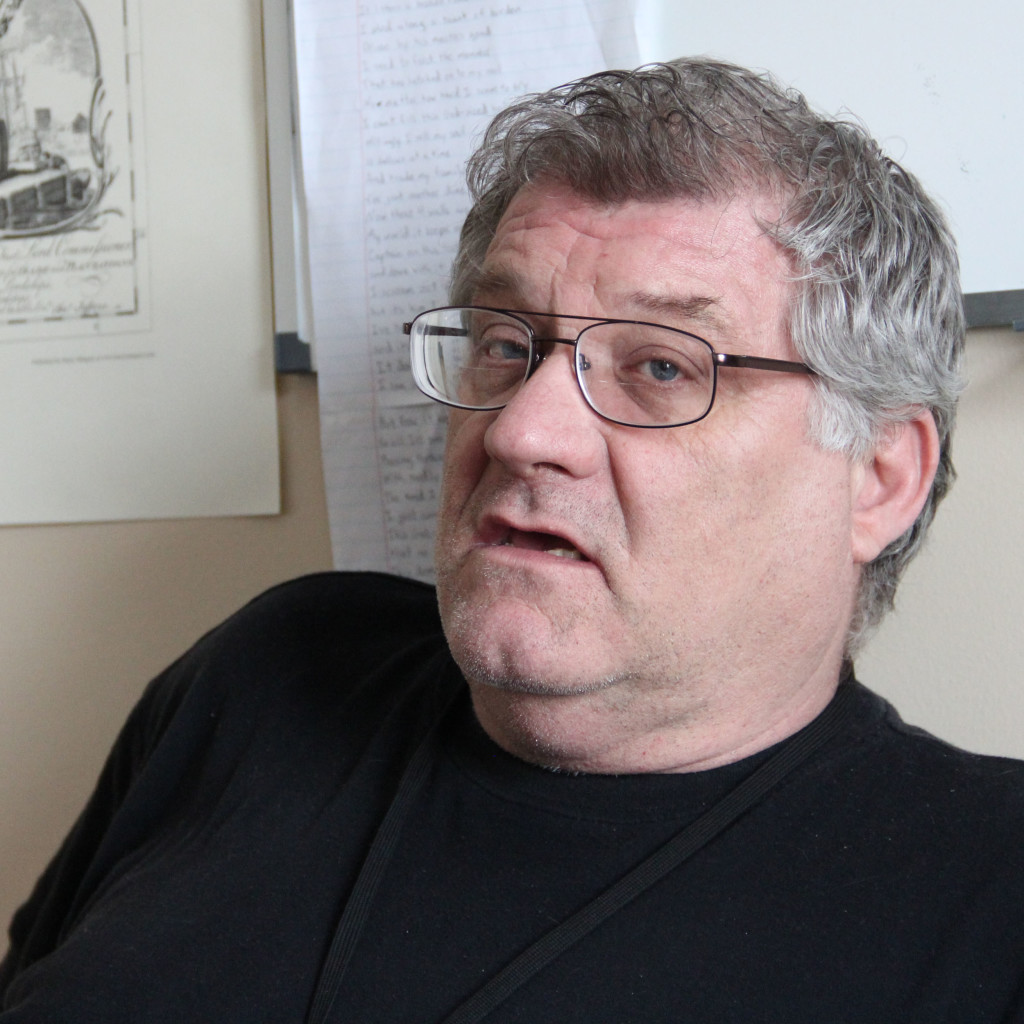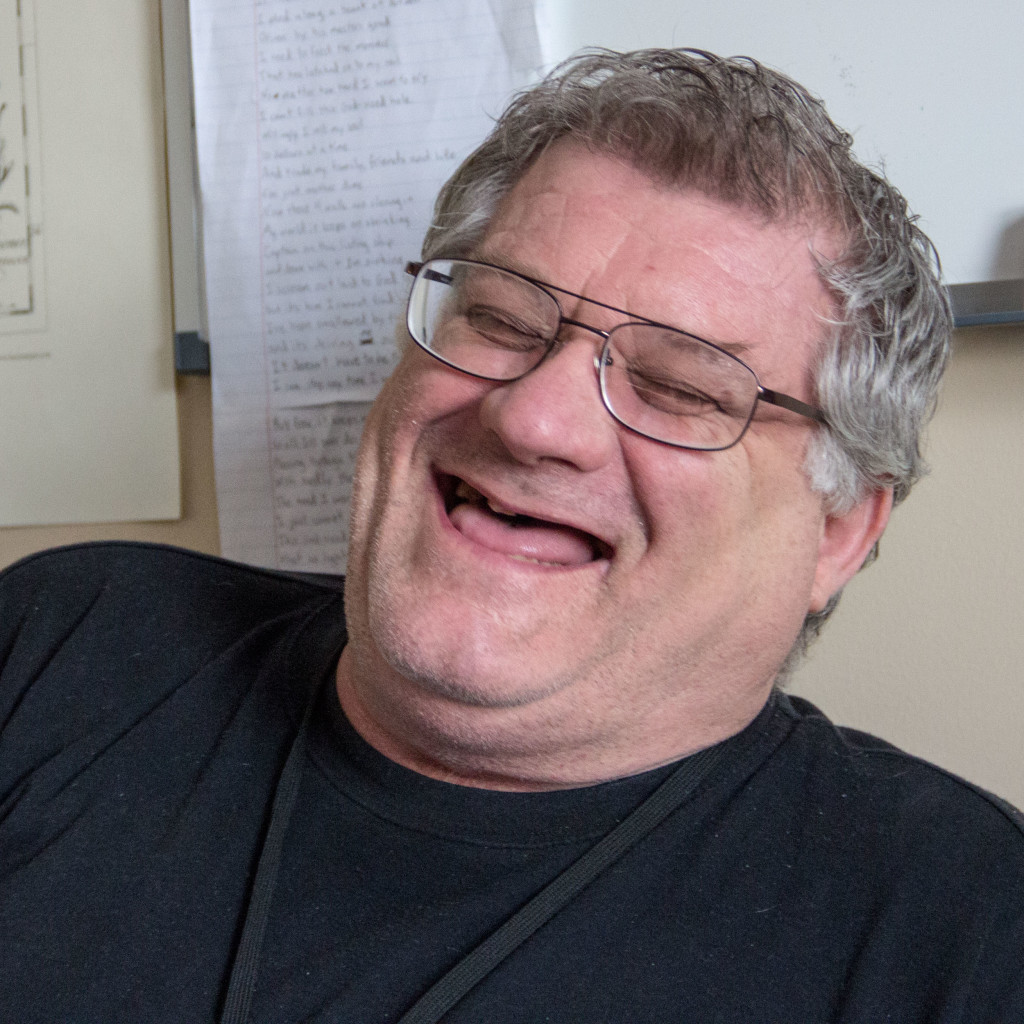Born in Chesapeake, Virginia, Doug Coffield’s parents divorced and he was raised by his grandmother at age five. “Grandma was like mom to me and living with her was the happiest part of my childhood,” he recalls.
But, at 12, he was sent to live with his now-remarried father and there was constant strife between Doug, his stepmother and stepbrother. So, by age 16, he started experimenting with a variety of chemicals – and alcohol became his drug of choice.
Looking back, Doug says, “I wasn’t addicted yet, just trying to fit in with friends. I was really shy and it gave me courage.”
Out of high school, he started working construction and quickly moved to driving trucks. “The big rigs came naturally to me; like I was born to do this,” Doug says. He became a professional long-distance truck driver.
He also kept up his drinking and using drugs. “Looking back,” Doug says, “I’d become an alcoholic in my early 20’s. I had to have a bottle of Jack Daniels with me in the truck all the time. By this time, I was getting high on almost everything – including doing speed (methamphetamine) to stay awake driving all night.”

Then, at 33, Doug had a spiritual moment of clarity – in a prison cell in Hagerstown, Maryland! “One night in a bar, a guy disrespected my girlfriend (now my wife!). We got into a fight and I ending up shooting him in the thigh!” Charged with assault and attempted murder, Doug received a 50-year sentence, with all but 5 years suspended. He served 2 ½ years and was released on parole for good behavior.
During that prison time, Doug knew he needed the Jesus his grandmother had introduced to him. He started praying, reading his Bible faithfully every day and attending every church service they had. “It was a true spiritual awakening for me,” he says.
Upon his release, Doug shared it all with his wife. Together, they started attending a small country church regularly and Doug became very active, attending Sunday School classes, participating on the church council and singing in the choir.
“But the pressures of life started to build and I didn’t know how to handle them,” Doug recalls. “My wife would use drugs from time to time and my spiritual focus began to deteriorate. After about 6 months I started using again.”
“Sadly, that’s how our marriage has been from the beginning. One of us gets clean and the other doesn’t – then we both wind up using again, together! In my 40’s, we both got hooked on heroin. I was in and out of recovery programs – both in jail and on the outside.”
First arriving at Helping Up Mission in 2014, Doug really wanted to stop using – and he did pretty well here, but left and eventually started using again.
When he felt like he just couldn’t take it any more, Doug came back to HUM, willing to do whatever necessary to stay clean – for him and his wife’s sake! He says he knew he could not do this himself and really needed God’s help. “I’m going to do whatever it takes; I’m done. Take me and I will do whatever you want,” was his prayer.
That was the summer of 2015. He was 59 years old…and it was surrender!
After being back here a while, Doug says he got peace and joy back in his soul. He started singing in the HUM choir. “I love to sing and try to always do it from my heart – others can feel it, too! It’s an important part of my recovery,” he says.
This summer – and now a HUM graduate – Doug was invited to help lead an evening Bible-focused recovery meeting on campus. Doug recalls the night he was to lead it by himself. “I was scared to death and it was hard getting started. But God helped me and the guys encouraged me.”
“I just tried to talk honestly about myself and how God is helping me. I also shared that I don’t really know what God has for me, but am waiting patiently. Afterwards, one guy said to me, ‘God is already doing something in you and through you.’ That helped!”
Doug says people have started to respect him now. “That’s pretty amazing because for the longest time, I didn’t even have respect for myself.”
Beyond his service here at HUM, Doug is also involved with a community outreach in Brooklyn Park, where people whose lives God has transformed, are available to help transform others. It’s been very meaningful to him.
This fall, Doug also enrolled at Faith Theological Seminary, working toward an undergraduate degree in Biblical Studies. “I want to be ready for whatever God has for me,” he says.
“My wife is doing well these days, too!” Doug is quick to add. “She’s working and this is the first time in our lives that my wife and I have been clean together – God is doing something new!”
